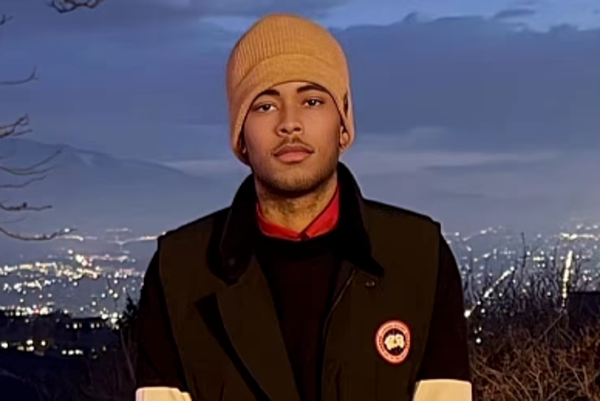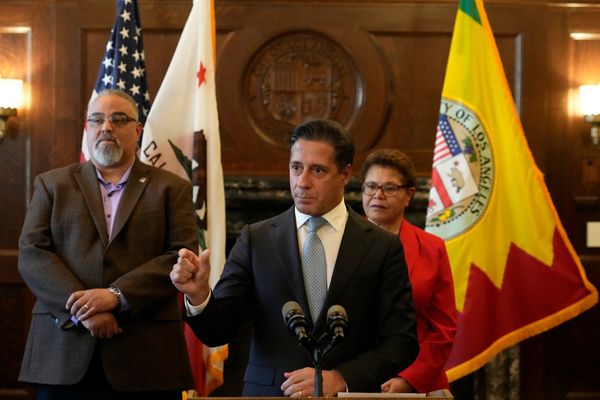Among active head coaches, only Tampa Bay's Jon Cooper has been behind the same team's bench for longer than Mike Sullivan.
Occupier of the position since the firing of Mike Johnston in December 2015, Sullivan is one of the rare examples of head coaches who have not only stayed with the same NHL franchise for an extended period of time, but survived through multiple front office changes.
Excluding an 11-day stint where Patrik Allvin served as the Penguins' interim general manager after Jim Rutherford resigned, Sullivan is set to operate this season under a third different regime, this one led by newly hired president of hockey operations Kyle Dubas. Eddie Olczyk, who coached and played for the Penguins and now commentates on TNT and Seattle Kraken games, is quick to point out the rarity of this occurrence.
"That's not normal. That doesn't happen," Olczyk said of Sullivan. "That's just the reality because most people when they come in, they are going to make a change, they're going to put their stamp on it, they're going to put their person or their team in control. [Sullivan's] resume speaks for itself."
To Olczyk's point, it's hard to argue with winning back-to-back Stanley Cup championships like Sullivan did in 2016 and 2017. Olczyk, a Stanley Cup winner himself in 1994 as a center with the New York Rangers, seems to think that Sullivan's pair of titles has earned him a longer "bungee cord" than most other coaches might get.
Olczyk also has reason to believe Sullivan would be a hot commodity if the Penguins were ever to let him go.
"I think that there would be a block full of teams that, if Mike Sullivan would ever become available, he would be at forefront," Olczyk said. "When you look at the resume and you look at the body of work and you look at the way that he handles himself, a leader both on and off the ice and the fabric within the community — those are all things that you look for when you're running a team or a manager of a team, and he checks every single box."
Of course, Olczyk's point of Sullivan having a long leash is relevant in light of the Penguins' 16-year playoff streak coming to an end this past season. The team that has yet to advance past an opening playoff series since the 2017-18 campaign became subject to turnover with Brian Burke, Ron Hextall and Chris Pryor all getting the boot two months ago.
Though Fenway Sports Group felt inclined to move on from the aforementioned front office trio, such wasn't the case with Sullivan, whom FSG co-head Dave Beeston called "terrific" back in April. Olczyk, who coached against Sullivan when the latter was heading the Boston Bruins in the early 2000s, commended his communication skills as one of his strengths. Ray Ferraro, who played 21 NHL seasons and currently provides color commentary for games on ESPN and ABC, seconded Olczyk's assessment.
"You are who you are. Mike was a blue-collar, direct player," Ferraro said. "When we talk to him when we get our media availabilities with him, he doesn't waver around. He's not wishy-washy about things, and I just know from the best coaches that I had that you might not always like the message, but you could understand it. I liked that it was direct, to the point, and I would say that probably is something about Mike guys appreciate."
Olczyk also pointed to a bit of a tougher asset to quantify in how Sullivan feels and sees the game. He referenced shrewd moves by Sullivan, like putting Jake Guentzel on the same line as Sidney Crosby for the last handful of years or how he utilized Nick Bonino during his time in Pittsburgh.
"I think he does have that feel when a guy is going, he's going to lean on that guy," Olczyk said. "He just has that special trait, in my opinion, of seeing who's going and allowing that guy to go out there and be an important part of the end result."
For all the praise each handed out to Sullivan, whom Ferraro said the city of Pittsburgh is "lucky" to have, they both recognized that a down season like the Penguins just endured requires blame to be passed around, even to the head coach. After last year's failures, what intrigues Ferraro is how the Penguins will approach the start of free agency, which is set to begin on July 1.
Per CapFriendly, the Penguins will have over $20 million in cap space but have to address their netminding situation, reconfigure their bottom six and add depth to the defense. Ferraro also wonders how the organization will address its thin minor league depth, an assignment that Burke, Hextall and Pryor failed to satisfactorily balance with winning in the present.
"They're in a funny spot because the best players are of the age they are," Ferraro said. "They don't have a lot of prospects and young guys, so how do you straddle the fence in building up your prospect pool, but also giving as much as you can to the current front end of your roster? How do you do it? Pittsburgh, to me, is going to be a fascinating case this summer."
From covering a number of Penguins games this year, Ferraro found the team to be slow and not able to dictate play as much as it could in past years. He doesn't seem to think it's much of a secret that the Penguins would like to become quicker and a bit more skilled after the top pieces on the roster.
Those duties, of course, fall on at least Dubas and assistant general manager Jason Spezza. Regardless of whatever roster the team's front office assembles this summer, Ferraro believes the Penguins would be wise to continue keeping their faith in Sullivan, who is under contract through the 2026-27 season after signing an extension last August.
"I don't know why they would have looked elsewhere. Who are you going to find that's better than Mike?" Ferraro said. "I think Mike does a terrific job, and I guess the only way you would have made a change is if the owners said, 'Yeah, don't worry about the four years remaining on his contract,' and the new GM says, 'I've got a better guy.'
"But unless those two things happened, why would people think there was going to be a coaching change?"







